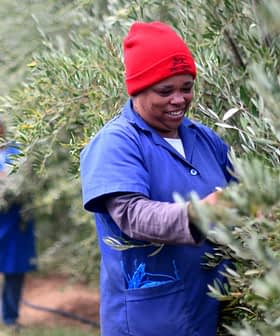
Prime Minister Sali Berisha
The political campaign period began Thursday in the southwestern country of the Balkan Peninsula, Albania.
Two main candidates will compete to be elected Prime Minister on June 23. Edi Rama, leader of the Socialist Party, is challenging Sali Berisha, the current Prime Minister of the country.
Among the main issues of the political controversy, along with the prospect of joining the E.U. and the wages policy of the new government, emerges the question of whether or not Albania should invest heavily in farming, and particularly in the olive oil industry.
Agriculture accounts for only 19 percent of Albania’s GDP, while more than 50 percent of the population still lives in rural areas. The country, doused by the Ionian Sea in Mediterranean Basin, is an ideal location for producing high-quality olive oil.
The land, although in some regions mountainous and at high altitudes, provides the slope-porous terrain that olive trees love. The western breeze from the sea keeps the temperature moderate while the summery light provides the energy needed for the synthesis of the fruit.
As Albania lacks experience in international markets though, its olive oil is hardly known abroad. Moreover, olive groves have often gone neglected, as young Albanians have sought work in neighboring countries such as Italy and Greece.
According to a 2009 study from USAID, the typical Albanian oil producer is male, aged 52, with a family of 5. He owns 1.47 hectares of land, of which 0.64 hectares are planted to olive trees, producing 1.01 metric tons of olives per year.
The study found a lack of efficiency in olive oil production caused by the absence of investment in new technology and the non-existence of high-yield intensive farming. However, it stated that “olives constitute a major element of Albanian culture.”
Traveling within agricultural areas to meet with farmers on the occasion of the elections, President Sali Berisha urged his compatriots to plant olive trees as the safest legacy to leave to future generations. “We planted 1,540 hectares of olive groves,” he said, praising his previous term in office.
Indeed, during the last 10 years, it is estimated that 2 million new olive trees were planted. Still, olive oil production is less than 12,000 tons in good harvest years, coming mostly from the areas of Fier, Vlora, and between Elbasani and Tirana, although accurate data do not exist.
Nearly all of the production of olives is in Berat, and more than 90 percent belongs to the olive variety Kokerrmadh.
Berisha has stated that he wants to see investments in olives and olive oil rise by planting up to 50 million new trees. He criticized his opponent Rama for visiting farmers stuck with unsold olive stock and using them as examples to counter-attack arguments on investing in the olive oil industry.








